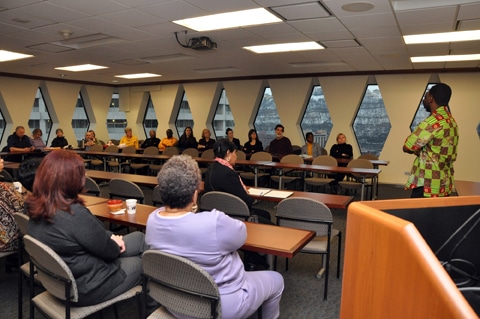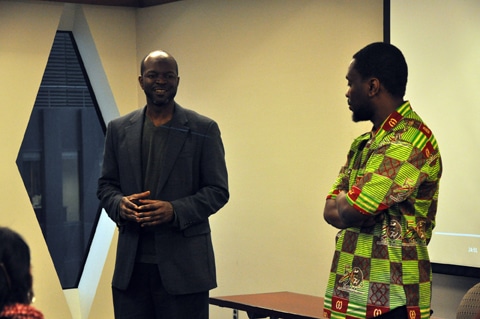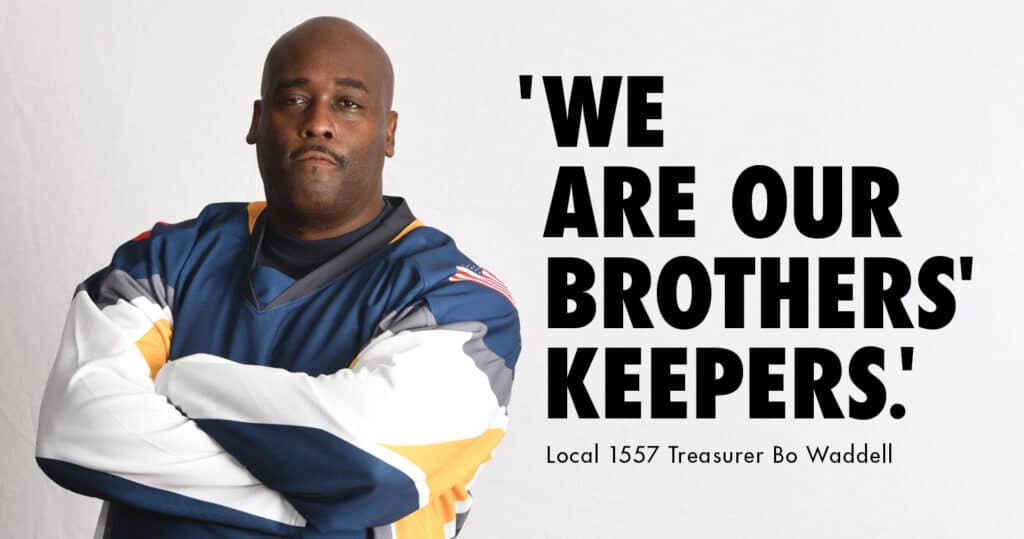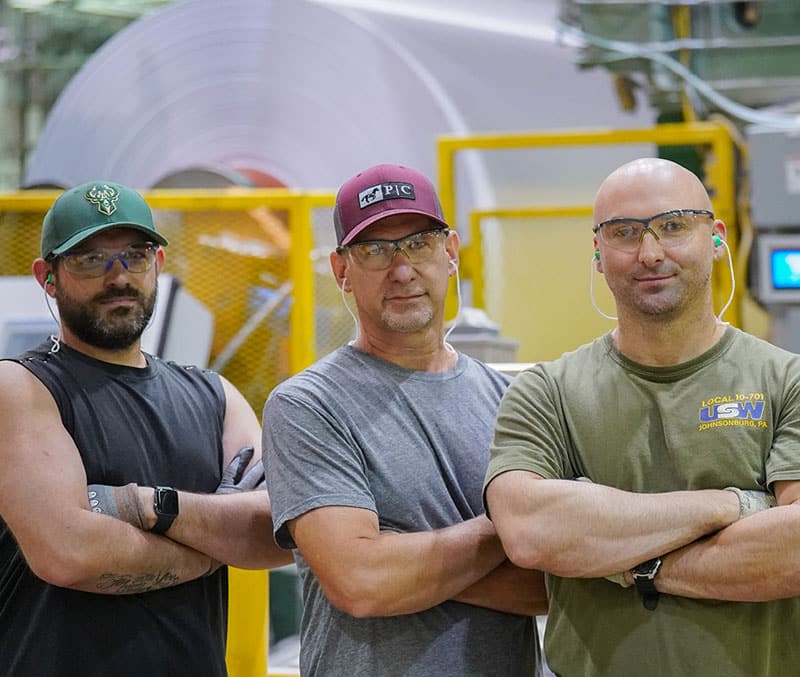Friends of the Congo’ seek support from USW
For almost 20 years, the Democratic Republic of the Congo has been the scene of the deadliest conflict since World War II, but the crisis in the central African nation has been virtually ignored by political leaders and media in the West.
Kambale Musavuli and Maurice Carney, with the human rights group Friends of the Congo, visited with USW representatives on Friday, Feb. 8, seeking help in ending the atrocities and bringing peace to the country.
 “What the international community is waiting for is U.S. leadership,” Musavuli said. “Our biggest job now is to educate the masses.”
“What the international community is waiting for is U.S. leadership,” Musavuli said. “Our biggest job now is to educate the masses.”
With that goal in mind, the pair has embarked on a “Breaking the Silence” speaking tour, which they brought to USW headquarters in Pittsburgh, sharing their story of the Congo crisis with more than two dozen union members, representatives and guests.
If USW members and other Americans begin to learn about the reality of the situation in the Congo, they can become active in forcing the United States and other Western nations to change their foreign policy, which has long supported those carrying out the violence.
“Unions can be a difference maker,” Carney said, calling on USW members to contact their congressional leaders and the White House, and urge them to make the necessary changes to U.S. foreign policy to support the Congolese people.
The Congo has the richest natural resources of any nation in the world. Huge deposits of rare minerals used in cell phones and computers, as well as large amounts of copper, gold, diamonds and ivory, have made it the focus of conflict for more than 125 years.
“Every mineral known to man is in the Congo,” Musavuli said.
To ensure continued access to those resources, countries including the United States have looked the other way and even actively supported those carrying out mass violence against the Congolese people. The United Nations estimates that at least 6 million people have died there since 1996.
 Following an outbreak of violence in neighboring Rwanda in 1994, millions of refugees fled to the Congo. Rwandan leaders, claiming the situation was a threat to their own national security, and aided by forces from neighboring Uganda, began systematically slaughtering hundreds of thousands of Congolese, including children, and raping entire villages of women. Supported by a pro-Rwandan foreign policy stance in the United States, the violence continued for years.
Following an outbreak of violence in neighboring Rwanda in 1994, millions of refugees fled to the Congo. Rwandan leaders, claiming the situation was a threat to their own national security, and aided by forces from neighboring Uganda, began systematically slaughtering hundreds of thousands of Congolese, including children, and raping entire villages of women. Supported by a pro-Rwandan foreign policy stance in the United States, the violence continued for years.
In 2006, then Sen. Barack Obama authored a bill, co-sponsored by Sen. Hillary Clinton, to alter U.S. foreign policy and lend more support to the Congolese people. President Bush eventually signed it into law, but so far change has been slow.
The task now, Musavuli and Carney say, is to put continued pressure on President Obama, the State Department and Congress to make sure the provisions of that law are carried out.
The most important step the United States can take is to cut aid to the Rwandan government to force them to stop the bloodshed. Because half of their budget comes from foreign aid, such a move would force change, they said.
“The U.S. is doing everything except what needs to be done,” Musavuli said.
Despite its vast natural wealth, the Congo was last out of 187 countries ranked on the United Nations’ Human Development Index in 2011. The index measured standards such as life expectancy, education and quality of life.
An end to the violence would allow the Congolese people to escape those desperate conditions and build a new future, Carney said. Because half of the population is under 18 years of age, there is hope that they can organize and turn the ravaged nation around.
|
Carney said action on the part of Americans is essential to that process, much like grassroots activism against South African apartheid helped bring attention and change to that country in the 1980s and ’90s.
“If the American people do not make this a top priority, it is not going to happen,” Musavuli said.
For more information and to get involved, visit the Friends of the Congo at www.friendsofthecongo.org.
View the short film, “Crisis in the Congo: Uncovering the Truth,”
By clicking Sign Up you're confirming that you agree with our Terms and Conditions.
Recent News Articles
Want to Learn More?
See how the USW is making a real difference in our communities and our workplaces.


